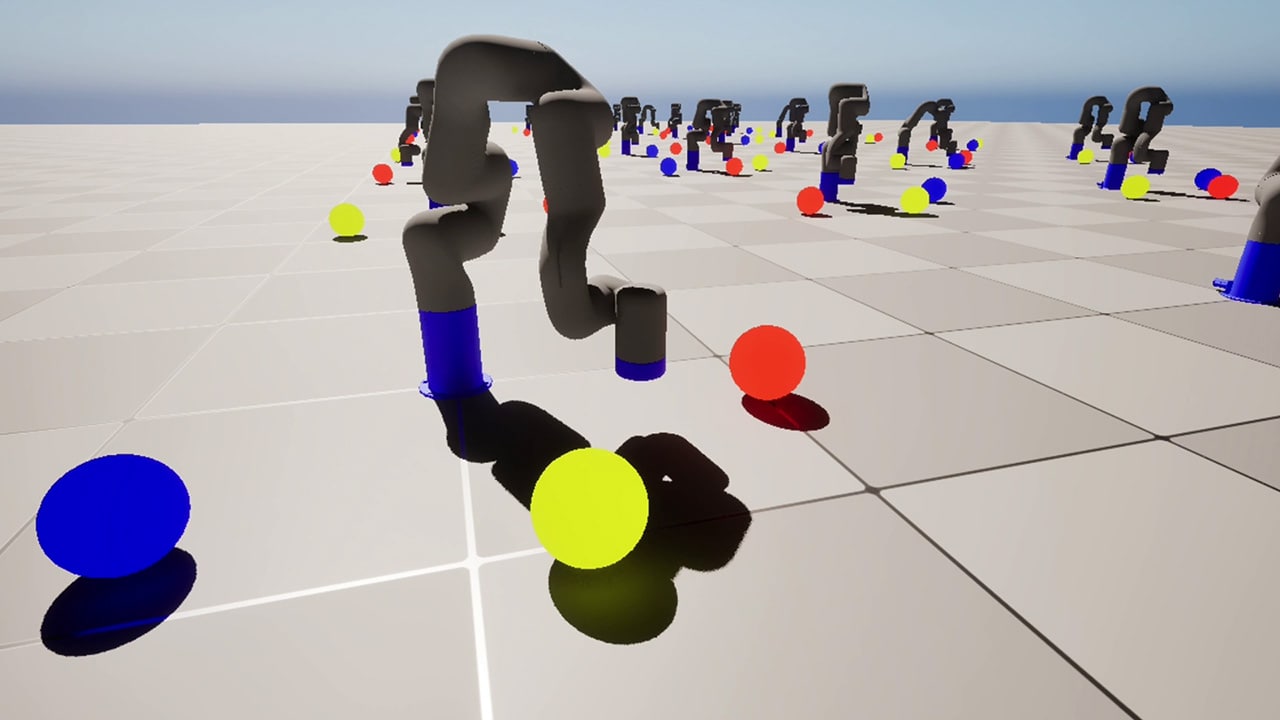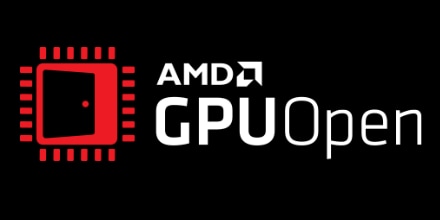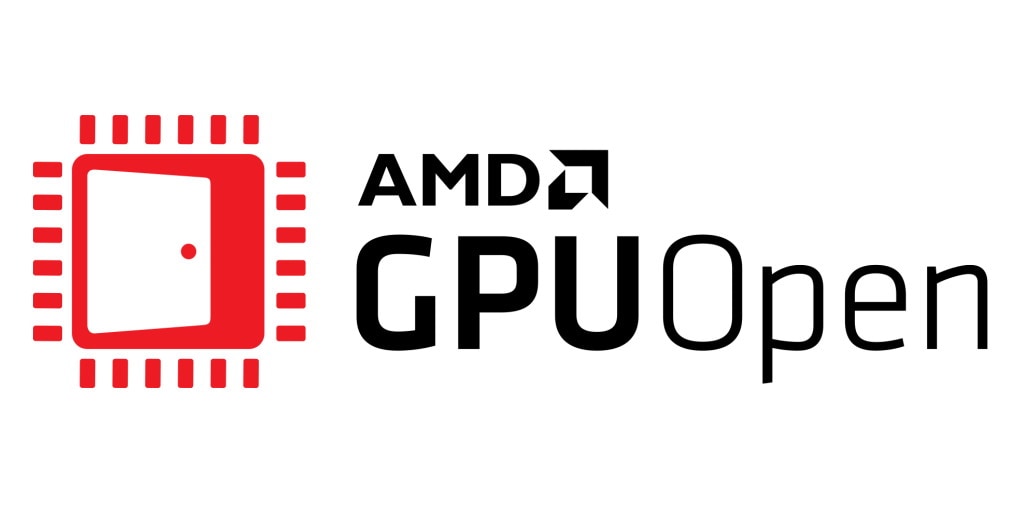
Training an X-ARM 5 robotic arm with AMD Schola and Unreal Engine
Train a robot arm with reinforcement learning in AMD Schola using Unreal® Engine, progressively increasing task complexity to adapt to changing conditions.
GPUOpen was officially launched five years ago on January 26th 2016 – by developers, and for developers.
At the time, we stated there were three principles, which we’re proud to say remain firmly the case today:

To celebrate our birthday, it feels like the perfect opportunity to take a look back over the last five years and share some of our accomplishments. We’ll be sharing some of them on Twitter @GPUOpen over the course of this anniversary week, but if you want spoilers, have a browse through our timeline below!
LiquidVR™ provides a Direct3D 11 based interface for applications to get access to the following GPU features regardless of whether a VR device is installed on a system.
27th January 2016
One of the mandates of GPUOpen is to give developers better access to the hardware, and this post details extensions for Vulkan and Direct3D12 that expose additional GCN features to developers.
24th May 2016
AMD Radeon™ ProRender SDK is a powerful physically-based path traced rendering engine that enables creative professionals to produce stunningly photorealistic images.
26th July 2016
How to set up the AMD Driver Symbol Server in Visual Studio.
27th October 2016
Radeon GPU Analyzer is an offline compiler and performance analysis tool for DirectX®, Vulkan®, SPIR-V™, OpenGL® and OpenCL™.
21st March 2017
PIX is a performance tuning and debugging tool for Windows developers using DirectX 12.
17th May 2017
If you want to know how well a game is performing on your machine in real-time with low overhead, OCAT has you covered.
24th May 2017
VMA is our single-header, MIT-licensed, C++ library for easily and efficiently managing memory allocation for your Vulkan® games and applications.
10th July 2017
RGP gives you unprecedented, in-depth access to a GPU. Easily analyze graphics, async compute usage, event timing, pipeline stalls, barriers, bottlenecks, and other performance inefficiencies.
26th July 2017
Information about the open-source availability of the Radeon™ ProRender renderer. We will give a brief summary of its features and provide some technical insights into the internals of the renderer.
30th July 2017
AMD announces Radeon™ ProRender support for real-time GPU acceleration of ray tracing techniques mixed with traditional rasterization based rendering.
20th March 2018
AMD FidelityFX Contrast Adaptive Sharpening (CAS) provides a mixed ability to sharpen and optionally scale an image.
8th July 2019
AMD FidelityFX Cauldron Framework is our open-source experimentation framework for DirectX®12 and Vulkan®, provided in the AMD FidelityFX SDK.
23rd July 2019
The RDNA Shader Instruction Set Architecture reference guide is now available.
2nd August 2019
The D3D12 Memory Allocator (D3D12MA) is a C++ library that provides a simple and easy-to-integrate API to help you allocate memory for DirectX®12 buffers and textures.
2nd September 2019
A multithreaded CPU library for deformable material physics, using the Finite Element Method (FEM)
14th December 2019
Highlights include further optimization of the physics simulation shaders, new rendering features, documentation and tutorials, and an updated TressFX Exporter for Autodesk® Maya®.
27th January 2020
Director of Game Engineering, Nick Thibieroz, introduces the relaunch of the GPUOpen website.
11th May 2020
Mass effects.
11th May 2020
Welcome Radeon™ ProRender developers to your new home! It’s never been easier to get started with Radeon™ ProRender, its now available under Apache 2.0 license.
13th May 2020
It’s dangerous to go alone! Read our RDNA Performance Guide to equip you with optimization tips and tricks.
14th May 2020
Appreciate your allocations. Obliterate your oversubscription. And make good those memory leaks. Show your video memory some love, with Radeon™ Memory Visualizer.
14th May 2020
Watch our Let’s build… 2020 presentations your way.
15th May 2020
Read about our three new AMD FidelityFX effects, launched as part of the Radeon™ RX 6000 series graphics card release.
24th November 2020
The Radeon™ Developer Tool Suite combines our Radeon™ GPU Profiler, Radeon™ Memory Visualizer, Radeon™ GPU Analyzer, and Radeon™ Developer Panel in one handy package.
24th November 2020
To accompany the launch of the AMD Radeon™ RX 6000 series graphics cards, we are excited to share new content and updates to GPUOpen with you.
24th November 2020
And the timeline above is only part of the story – we’ve more than made good on our promise to provide code and documentation too. With far too many highlights for us to reasonably fit on this page, why not have a browse of our “Learn” section below?
We hope you are looking forward as much as as we are to what the next five years and beyond will bring. This is only the beginning – GPUOpen is already an extensive resource, and we have so many more things we are working on that we are really looking forward to sharing with you!
It’s very exciting times for AMD and GPUOpen, and we’re delighted to continue to welcome you along for the ride.

